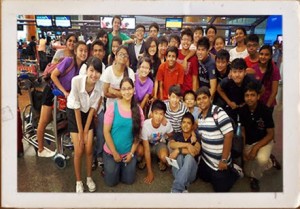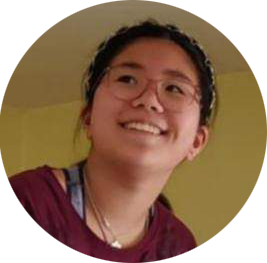Bill Belew has raised 2 bi-cultural kids, now 34 and 30. And he and his wife are now parenting a 3rd, Mia, who is 8.
I was born in Challapalli, a small village near our district headquarters. At a small age I was sent to my aunts house in the city. My aunt and uncle along with their son lived in Vijayawada. My aunt is a very exceptional person. Unlike my family, my aunt was strict. She believes that irrespective of age, we need to do our own tasks. She is very kind but at the same time she wanted to develop our individuality.
My mother was very liberal, she used to polish my shoes, comb my hair, select my dress and also clean my utensils. My aunt was the complete opposite, she asked us to do all the mentioned tasks on my own. She maintains some strict rules, so she wouldn’t spoil me and develop my individuality. This is a cultural difference I faced at early age.
In my 3rd grade I was joined in a boarding school. Our first language in the school was English. Our school gathered students from all over India. By the time I was in 6th grade, students spoke Punjabi, Hindi, Tamil, Telugu, Guajarati, Bengali and many other languages. Our local language is Telugu. It was my first cultural shock when I couldn’t understand what my classmates were speaking. It was my first time trying to communicate with my classmates in English. The following year our school made a strict policy to only speak English on the school grounds. Any person speaking any other languages was penalized. There were many cultures and traditions intermingled in our class. We celebrated festivals from all over India to get the students closer irrespective of their cultural differences.
In secret we started learning different languages, by speaking in them. Most of us first learnt to scold each other in different languages. I have friends who spoke Marathi, Guajarati, Oriya, and Hindi. I leant to understand a little Hindi as most of my classmates from north India spoke it. You can tell our school is a multicultural place. We were told to respect and honor the traditions of other cultures. One of my friends, who only spoke Hindi, learnt our local language and speaks it fluently. Even though we faced many difficulties, in the end being bi-cultural made us get some great friends.
‘BITS Pilani’ is a very high-end engineering college in our country. They opened another college in Dubai. For my engineering I was sent to Dubai to join that collage. The Middle Eastern culture is completely different from any other culture. They have different customs and traditions than the rest of the world. Women had to cover their face when they went outside. The men barely worked. The government pays every citizen some land and the people live on the rent and funds from government. Unlike other Middle Eastern countries, Dubai is much friendlier. They had very good public transportation unlike in our country. The food was different; their main source is bread and paratha. I faced many cultural shocks but enjoyed the variety. As far as I can tell all the cultural differences I faced made the man I am now.
Talk to Bill and others about their experiences raising bi-cultural Japanese-American kids.


